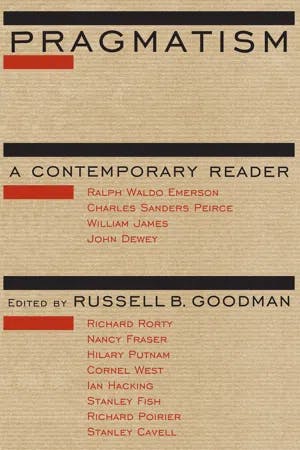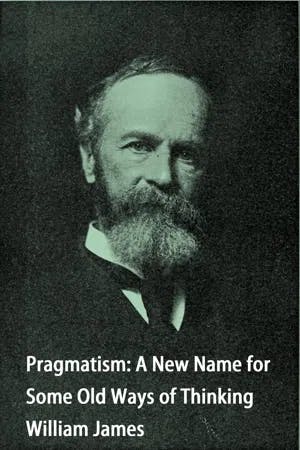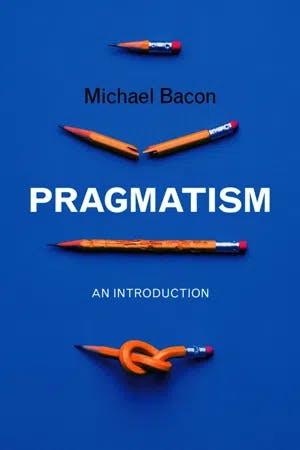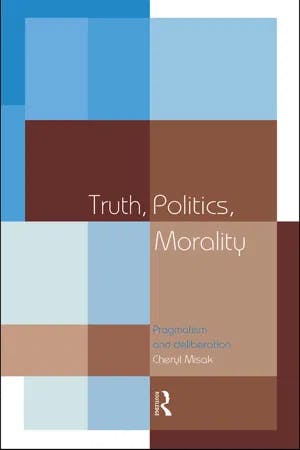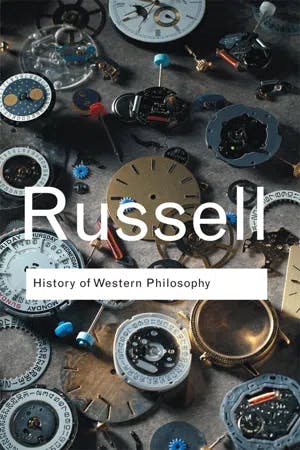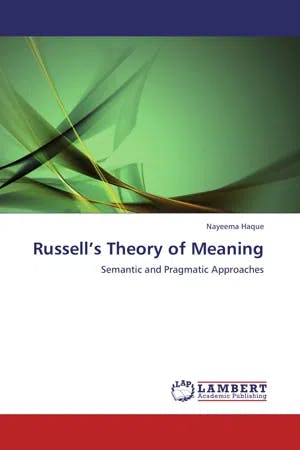What is Pragmatism?
PhD, Media Arts (Royal Holloway, University of London)
Date Published: 28.09.2023,
Last Updated: 24.11.2023
Share this article
Defining pragmatism
In layman's terms, we understand the word “pragmatic” to refer to characteristics associated with practicality, common sense, and efficiency. Derived from the Greek “pragma,” meaning “action” or “deed,” the philosophical movement pragmatism is an idea that carries much the same priorities. The difficulty in defining pragmatism as a philosophy is outlined by Russell B. Goodman, who writes,
The pages of just one pragmatist work—James's Pragmatism (1907)—contain at least six accounts of what pragmatism is or contains: a theory of truth, a theory of meaning, a philosophical temperament, an epistemology/metaphysics stressing human interest and action, a method for dissolving philosophical disputes, and a skeptical anti-essentialism. (2020)
Edited by Russell B. Goodman
The pages of just one pragmatist work—James's Pragmatism (1907)—contain at least six accounts of what pragmatism is or contains: a theory of truth, a theory of meaning, a philosophical temperament, an epistemology/metaphysics stressing human interest and action, a method for dissolving philosophical disputes, and a skeptical anti-essentialism. (2020)
What Goodman refers to is the fact that pragmatism is less a coherent philosophical school of thought and more a specific method or approach that can be applied to a range of disciplines.
Pragmatism is both an epistemology, addressing the question of how we come to have knowledge, and an ontology, considering what exists and what it means to exist. Rather than concerning themselves with the origins of our thoughts, pragmatists choose to examine the results of those thoughts, rendering knowledge and belief an interaction with the world – a process rather than a fixed mental construct or noumenal fact. The pragmatist approach holds that knowing the world is inseparable from acting in the world, asking questions such as “Is this belief or understanding useful?” or, “Does it lead me to positive action?”
Pragmatism was developed as a response to the growing divide between ideas like empiricism and scientism on one side and rationalism and idealism on the other. The former proposed that the only way we have any claim to knowledge is through our experiences, whereas rationalists and idealists believed that the mind could generate knowledge prior to experience. These schools of thought were at fundamental odds, each finding the other to be dogmatic, fostering skepticism, uncertainty, and intellectual poverty. Pragmatist William James (1842–1910) described pragmatism as traversing the divide between the “tough-minded”, materialist pessimism of empiricism and the “tender-minded”, rationalistic, religious optimism of idealism (Pragmatism 1907, [2020]). James asks, in light of this philosophical divide, “Now what kinds of philosophy do you find actually offered to meet your need?” (1907 [2020]). He answers,
You find an empirical philosophy that is not religious enough, and a religious philosophy that is not empirical enough for your purpose. (1907 [2020]).
William James
You find an empirical philosophy that is not religious enough, and a religious philosophy that is not empirical enough for your purpose. (1907 [2020]).
Pragmatism hopes to provide a philosophy that corresponds to the facts as they appear, but leaves room for belief, for faith.
Pragmatists were dismayed in philosophy’s general tendency to deal in abstract concepts and hypothetical ideas. In the face of metaphysical disputes, the pragmatist maxim posed the question: “What difference would it make for me to believe this theory is true/false?”, and if the answer were “none outside of semantics,” then no such real dilemma existed. As we will come to see, language plays a significant role in explaining the development of pragmatist thought. This study guide will outline the basic pragmatist methodology then trace its historical origins, exploring some of the movement’s most central debates.
The pragmatist approach
As verificationists, the pragmatists agree with the empiricist assertion that experience is the only way we can claim to have knowledge. It supports the validity of scientific investigations, for example, because the practice of science allows us to engage with the world in a meaningful way. Scientific investigation is a process whereby experimentation leads us to substantive claims about the way the world is. This aligns with the pragmatist assertion that the belief or theory that best corresponds to our experience of the world — that best helps us see practical effects from our actions — is the most useful theory for us to hold. In short, the pragmatists hold that the only real guide to whether a theory may be true is how well it works.
In Pragmatism: An Introduction, Michael Bacon addresses the philosophical significance of this perspective, claiming,
The idea of pragmatism as a philosophy immediately raises a question. For if pragmatism is tied to practical success, how does it relate to philosophy, characterized as it is by the attempt to rise above everyday concerns? Pragmatists address philosophical questions, such as the nature of truth, how knowledge is possible, and the demands of moral and political life. But they do so by arguing that these questions should be addressed by drawing upon the resources offered by our practices, and with reference to the consequences they have for our lives. (2014)
Michael Bacon
The idea of pragmatism as a philosophy immediately raises a question. For if pragmatism is tied to practical success, how does it relate to philosophy, characterized as it is by the attempt to rise above everyday concerns? Pragmatists address philosophical questions, such as the nature of truth, how knowledge is possible, and the demands of moral and political life. But they do so by arguing that these questions should be addressed by drawing upon the resources offered by our practices, and with reference to the consequences they have for our lives. (2014)
With this in mind, pragmatism found answers to epistemological questions that rely on the rationalist point of view, — such as those gained through introspection and logic — too often independent from practical interaction with the world. Pragmatism sought to avoid vacant metaphysical propositions, prioritizing instead the effect that ideas have on the world around us and the way in which those ideas enrich our capacity for agency. To this end, pragmatism did not as much claim to directly apprehend or mirror reality as it did to participate in the world, leaving some other empiricist schools of thought skeptical as to its epistemological and ontological efficacy.
Historical origins of pragmatism
Pragmatism was developed in the early 1870s at Harvard University in Massachusetts. Set in motion by a reading group that called themselves “The Metaphysical Club,” pragmatism reflected the intellectual changes taking place in light of the Industrial Revolution and Charles Darwin’s theory of evolution. The Metaphysical Club was composed of several key thinkers from a variety of disciplinary backgrounds. Most influential were William James (1842–1910), whose work was primarily in psychology, John Dewey (1859-1952), a philosopher focussing on education, and Charles Sanders Peirce (1839-1941), who was a logician, mathematician, and scientist.
In his book, Pragmatism, James describes the thesis that pragmatism must defend. He writes,
True ideas are those that we can assimilate, validate, corroborate and verify. False ideas are those that we cannot. (James, 1907, [2020])
To defend this position, James asserted that pragmatism had to demonstrate that, rather than truth being an inherent property of ideas or of the outside world, it is a sort of dialectic, an activity between the mind and the world. James posits,
Truth happens to an idea. It becomes true, is made true by events. Its verity is in fact an event, a process. (1907, [2020])
James emphasizes that the truth of an idea is irrelevant as a conclusion in and of itself; it must be put to use to be meaningful. To illustrate this, he imagines he is lost in the woods, and he comes across a path. Crucially, he thinks that if he follows the path, he will eventually find a farmhouse. This idea is useful because it helps him act practically in the world. The knowledge that a path leads to civilization, under other circumstances, would be irrelevant. Therefore, he concludes,
The practical value of true ideas is thus primarily derived from the practical importance of their objects to us. […] True is the name for whatever idea starts the verification-process, useful is the name for its completed function in experience. (James,1907 [2020])
We can see here, pragmatism’s unique approach. Truth is seen as a means to an end -- that end being positive action -- and the verification of that truth comes from its implementation.
Peirce was arguably the most influential member of the metaphysical club, leaving a lasting imprint on Western philosophy. In his 1877 paper, “The Fixation of Belief,” Peirce begins by examining what he later determines to be the foundation of belief (in Philosophy after Darwin, 2021). Much like truth for James, belief for Peirce is that which helps to satisfy our needs. If ever we are in doubt, we cease to be successful in our own satisfaction; so, doubt is the posing of a question and belief is the proposition of an answer, supported by the way the world is. Doubt is a state in which we are unable to act, therefore, for the pragmatists, it must be replaced with belief. For example, if I want a cup of tea, but do not know where the kettle is, then I have doubt and am unable to fulfill my desire. The only action I can take is to come to a true belief about where the kettle is. This belief would be “a guide to action” and I would be able to fulfill my desire for a cup of tea (Albert Atkin, Peirce, 2015). This, for Peirce, is akin to the process of scientific enquiry: that which moves us from the troubling state of doubt to the fulfillment of belief. Therefore, a belief is justified by pragmatic means if it proves useful to our success and satisfaction. The function of a belief for Peirce and the pragmatists is primarily to guide action rather than to grasp truth, even suggesting, like James does, that truth can be defined in terms of positive action.
We see how in the case of both James and Peirce, potentially abstract metaphysical or idealist concepts are given grounding in communal experience and activity. Cheryl Misak describes the success of pragmatism, explaining that,
Pragmatism thus abandons the kind of metaphysics which is currently in so much disrepute - it abandons concepts which pretend to transcend experience. Truth and objectivity are matters of what is best for the community of inquirers to believe, “best” here amounting to that which best fits with the evidence and argument. On the pragmatist view of truth, when we aim at empirical adequacy, predictive power, understanding the way things work, understanding ourselves, and the like, we aim at the truth. For a true belief is the belief which best satisfies those and other particular aims in inquiry. (2002)
Cheryl Misak
Pragmatism thus abandons the kind of metaphysics which is currently in so much disrepute - it abandons concepts which pretend to transcend experience. Truth and objectivity are matters of what is best for the community of inquirers to believe, “best” here amounting to that which best fits with the evidence and argument. On the pragmatist view of truth, when we aim at empirical adequacy, predictive power, understanding the way things work, understanding ourselves, and the like, we aim at the truth. For a true belief is the belief which best satisfies those and other particular aims in inquiry. (2002)
The implications of the classical pragmatist approach can be discerned here: a particular perspective on the definition and apprehension of truth.
Pragmatism debates in Britain
In some parts of Britain, the intellectual milieu took time to warm to pragmatism. At the turn of the 20th century, empiricism was prominent in Britain, with rife epistemological discourse on the relationship between experience and knowledge, predominantly exhibiting a post-Cartesian position on the mind. Pragmatism had its own approach to this question, one that facilitated the rivalry between James and the logical positivist, Bertrand Russell (1872-1970). Russell rejected the pragmatist position of equating that which is true with that which is useful. Of James’ position on truth, Russell writes,
I find great intellectual difficulties in this doctrine. It assumes that a belief is “true” when its effects are good. If this definition is to be useful—and if not it is condemned by the pragmatist's test—we must know (a) what is good, (b) what are the effects of this or that belief, and we must know these things before we can know that anything is “true”, since it is only after we have decided that the effects of a belief are good that we have a right to call it “true”. The result is an incredible complication. Suppose you want to know whether Columbus crossed the Atlantic in 1492. You must not, as other people do, look it up in a book. You must first inquire what are the effects of this belief, and how they differ from the effects of believing that he sailed in 1491 or 1493. (1946, [2004])
Bertrand Russell
I find great intellectual difficulties in this doctrine. It assumes that a belief is “true” when its effects are good. If this definition is to be useful—and if not it is condemned by the pragmatist's test—we must know (a) what is good, (b) what are the effects of this or that belief, and we must know these things before we can know that anything is “true”, since it is only after we have decided that the effects of a belief are good that we have a right to call it “true”. The result is an incredible complication. Suppose you want to know whether Columbus crossed the Atlantic in 1492. You must not, as other people do, look it up in a book. You must first inquire what are the effects of this belief, and how they differ from the effects of believing that he sailed in 1491 or 1493. (1946, [2004])
The pragmatist justification of belief and truth, for Russell, too closely resembled the idealist assertion that there are no knowable mind-independent objects. The logical positivists believed that the only way for us to have knowledge is through sense-data, the raw materials of experience. Because sense-data is an imprint of the way things are in the world, there is, for the logical positivists, an objective world to be known. Pragmatism threatens this premise with its tendency towards subjectivity. The fact that pragmatism considered truth and belief not as a direct mirror to an objective reality but rather as a means of measuring subjective success was not, in the eyes of Russell, empirically committed enough.
Elsewhere, and in other fields, pragmatist practice was embraced. Ludwig Wittgenstein (1889-1951), who initially studied under Russell, made an intellectual shift to an idea that closer resembled a linguistic pragmatist philosophy. He was troubled by the privacy of sense-data; that there was no way to compare your own experience to someone else’s. To combat this solipsistic threat, Wittgenstein developed his own theory, mostly concerned with the role of language in the exploration of individual sensation. He concludes that it is of no matter that we cannot experience the sensations of others because we can make connections between our separate experiences through the practice of language. Nayeema Haque explains Wittgenstein’s pragmatist premise of language:
He described the relation between the linguistic premises about the ontological conclusions as an “internal” and not as an “external” relation. Though there is some doubt about what this means, nevertheless it seems to reject the idea of a simple, straightforward, correlation of language and reality, as though the two items could be separately identified. This view is undoubtedly related to Wittgenstein’s claim that philosophical propositions, for example those relating language to reality, are in some way “nonsensical”. (2011)
Nayeema Haque
He described the relation between the linguistic premises about the ontological conclusions as an “internal” and not as an “external” relation. Though there is some doubt about what this means, nevertheless it seems to reject the idea of a simple, straightforward, correlation of language and reality, as though the two items could be separately identified. This view is undoubtedly related to Wittgenstein’s claim that philosophical propositions, for example those relating language to reality, are in some way “nonsensical”. (2011)
For Wittgenstein, there are no necessary connections between the words we use and the objects they signify. It is of no concern whether our words directly correspond to an objective reality because meaning is derived from our collective use of language; language is a mode of action. All that can be meaningfully discussed is what we have practical and public experience of (for more on this, see our “What is Solipsism?” study guide). While Wittgenstein did not directly identify as a pragmatist, his analytic philosophy and approach to language had a profound influence on the development of pragmatism internationally. His approach illustrates the importance of language on the pragmatist criteria of verification; that meaning and truth are things communally practiced, developed through use rather than existing to an objective reality.
Contemporary pragmatist thought
Pragmatism has been in and out of philosophical fashion since its development towards the end of the 19th century and recently, there has been renewed interest. As Goodman notes,
What brings pragmatism back again is neither the emergence of a new metaphysical system nor a technique for eliminating all systems, but rather the appreciation of a deep convergence of thought in twentieth century philosophy. (Pragmatism, 2020)
Goodman refers to the way in which pragmatism coalesces diverging philosophical schools of thought, with fruitful application in law, linguistics, feminism and literary theory.
Notable neo-pragmatist, Richard Rorty (1931-2007) mainly echoes the classical pragmatist assertion that it is a mistake to take thought and language as a direct representation of reality. Rorty amends this position, however, claiming that, rather than pragmatism presenting a theory of truth, it in fact should abandon notions of truth altogether. According to Rorty, truth is merely the word we use to describe justified beliefs. There is no one truth, nor can we claim to grasp the true nature of things, so it would be meaningless to speculate on whether there is an intrinsic nature of the world. Instead, we have a language that helps us talk about truth – it is the effect of sentences – rather than truth existing independent of the human mind. (For more information, see Rorty, Philosophy and the Mirror of Nature, 2008 and Pragmatism as Anti-Authoritarianism, 2021)
Misak defends the pragmatist concern with truth, claiming that “there is a version of pragmatism on which truth is not as fickle as Rorty supposes.” (Truth, Politics, Morality, 2002). For Misak, truth is a crucial concept to inquiry and must be considered outside of its metaphysical associations. Misak describes her own concept of truth, explaining,
The first way pragmatism delivers a notion of truth which can be used in inquiry is to give us a conception of rational belief. It closes the gap between truth and inquiry and explains why some of our current beliefs are considered rational, or more likely to be true, than other beliefs, even if we cannot know that they are true. If truth is the belief which would best fit with the evidence, were we to have so much by way of good evidence that no further evidence would overturn the belief, then a rational belief is the belief which best fits with the evidence that we currently have. If truth is what would be justified by the principles of inquiry, were inquiry to be pursued as far as it could fruitfully go, then a rational belief is one which is justified by the current principles of inquiry […] Although we are never in a position to judge whether a belief is true or not, we will often be in a position to judge whether it is the best belief given the current state of inquiry. (2002)
Using Peirce’s concept of truth, Misak argues that its use is necessary, not just as a word that refers to an abstract, non-existent idea, but as a way of making these “rather critical distinctions in enquiry.” (2002).
These are all examples of the liveliness of pragmatist discourse today. Its resurgence has facilitated attempts to reframe our relationship to each other and to the world and to reconsider the task of epistemological and ontological thought. Pragmatism is continuously used as a way to rehabilitate empiricist thought and philosophy more generally.
Further pragmatism reading on Perlego
Pragmatism by D.L. Murray
The Great Philosophers: Karl Marx, Charles Sanders Peirce and William James by J. Stangroom, and J. Garvey
Language and Being in Wittgenstein’s ‘Philosophical Investigations’ by J. T. Price
Rorty, Pragmatism, and Confucianism by Y. Huang
Pragmatism, Law, and Language by G. Hubbs and D. Lind
Pragmatism FAQs
What is pragmatism in simple terms?
What is pragmatism in simple terms?
What are the historical origins of pragmatism?
What are the historical origins of pragmatism?
Who were some significant pragmatist thinkers?
Who were some significant pragmatist thinkers?
What is William James’ theory of truth?
What is William James’ theory of truth?
Bibliography
Atkin, A. (2015) Peirce. Taylor and Francis. Available at: https://www.perlego.com/book/1561156/peirce-pdf
Bacon, M. (2014) Pragmatism. Polity Press. Available at: https://www.perlego.com/book/1535761/pragmatism-an-introduction-pdf
Goodman, R. (2020) Pragmatism: A Contemporary Reader. Taylor and Francis. Available at: https://www.perlego.com/book/2029061/pragmatism-a-contemporary-reader-pdf
Haque, N. (2011) Russell’s Theory of Meaning: Semantic and Pragmatic Approaches. LAP LAMBERT Academic Publishing. Available at: https://www.perlego.com/book/3368074/russells-theory-of-meaning-semantic-and-pragmatic-approaches-pdf
James, W. (2020) Pragmatism: A New Way for Some Old Ways of Thinking. Spartacus Books. Available at: https://www.perlego.com/book/2916514/pragmatism-a-new-name-for-some-old-ways-of-thinking-pdf
Misak, C. (2002) Truth, Politics, Morality: Pragmatism and Deliberation. Taylor and Francis. Available at: https://www.perlego.com/book/1618555/truth-politics-morality-pragmatism-and-deliberation-pdf
Peirce, G. S. (2021) “The Fixation of Belief,” in Ruse, M. (ed) Philosophy after Darwin: Classic and Contemporary Readings. Available at:
https://www.perlego.com/book/2394250/philosophy-after-darwin-classic-and-contemporary-readings-pdf
Russell, B. (2004) History of Western Philosophy. Taylor and Francis. Available at: https://www.perlego.com/book/1611334/history-of-western-philosophy-pd
PhD, Media Arts (Royal Holloway, University of London)
Aoiffe Walsh has a PhD in Media Arts from Royal Holloway, University of London. With a background in film studies and philosophy, her current research explores British literary modernism, with a particular focus on surrealism between the wars. She has lectured and published pieces on documentary and film theory, film history, genre studies and the avant-garde.

